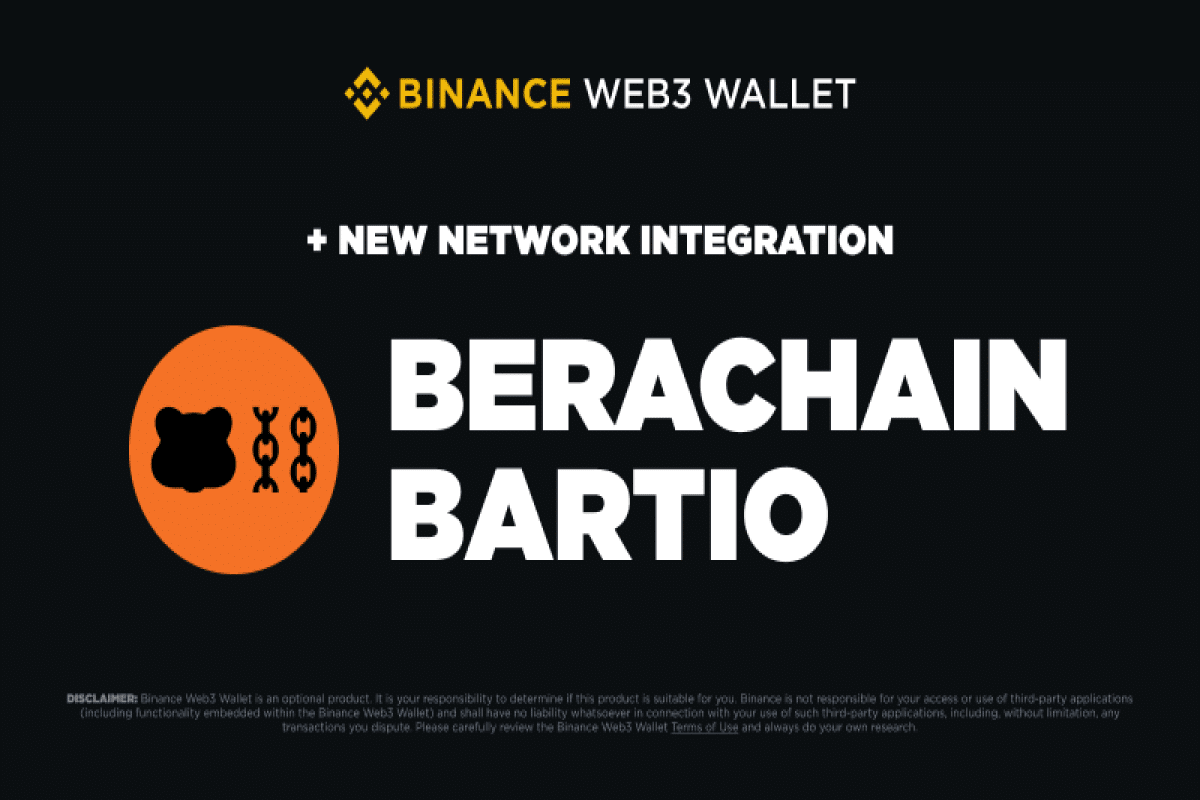
This campaign is an educational initiative aimed at helping Binance Web3 Wallet users gain experience with Berachain, a new EVM-compatible Layer 1 blockchain powered by Proof of Liquidity. Users who complete the suggested testnet tasks while connected to a Binance Web3 Wallet will be eligible to claim rewards based on their testnet activity. Each participant can receive one NFT per MPC Wallet for completing the activities. These NFTs are soulbound, meaning they cannot be transferred.
Check our previous post about Berachain Airdrop.
Investments in the project: $42M
Step-by-Step Guide:
- Go to website
- Connect your Binance Web3 Wallet. (If you don’t have a Binance account. You can register here)
- Claim NFT (Free)
A few words about a project:
The Binance Web3 Wallet is a self-custody crypto wallet built into the Binance app, giving users more control in the decentralized finance (DeFi) space. It acts as a secure and easy-to-use portal to blockchain-based apps (dApps), allowing users to manage their crypto, swap tokens across different chains, earn yield, and engage with various blockchain platforms.
The Berachain bArtio network has been redesigned to be more modular and compatible with the Ethereum Virtual Machine (EVM). To achieve this, a new framework called BeaconKit was created.
V2 is the first version to use the BeaconKit framework, which separates execution and consensus. It allows for any EVM execution client (like Geth or Reth) to be paired with a consensus client.
Key Changes from V1 to V2 The V1 testnet (Artio) was based on Polaris, which tightly integrated EVM execution with the Cosmos SDK, creating a monolithic structure for optimized precompiles.
However, despite these optimizations, Cosmos struggled to handle Berachain’s high transaction volume and compatibility issues arose with precompiles and the forked EVM execution client.
In V2, a modular architecture was introduced, separating the consensus and execution layers. Unlike V1, where validators used just one Polaris client, V2 requires validators to run two clients: the BeaconKit client for consensus and any EVM execution client (like Geth or Erigon) for execution. This setup allows each layer to focus on its specific role—enabling the execution layer to leverage EVM advancements while BeaconKit delivers a highly customizable and efficient consensus system.







